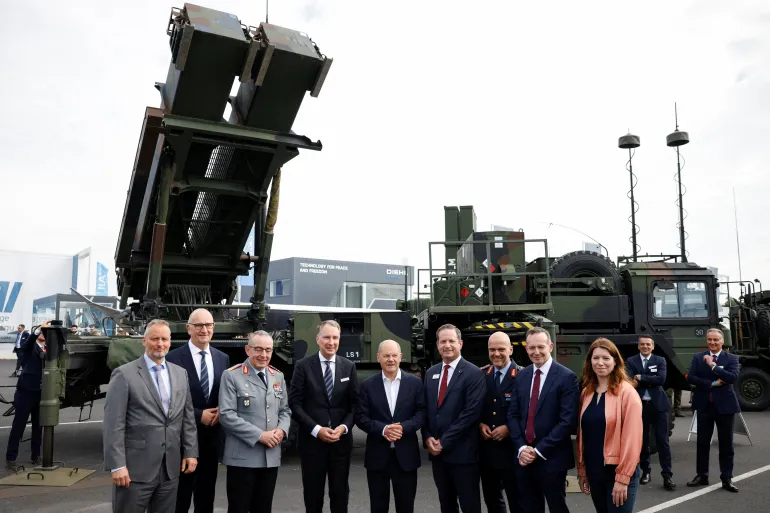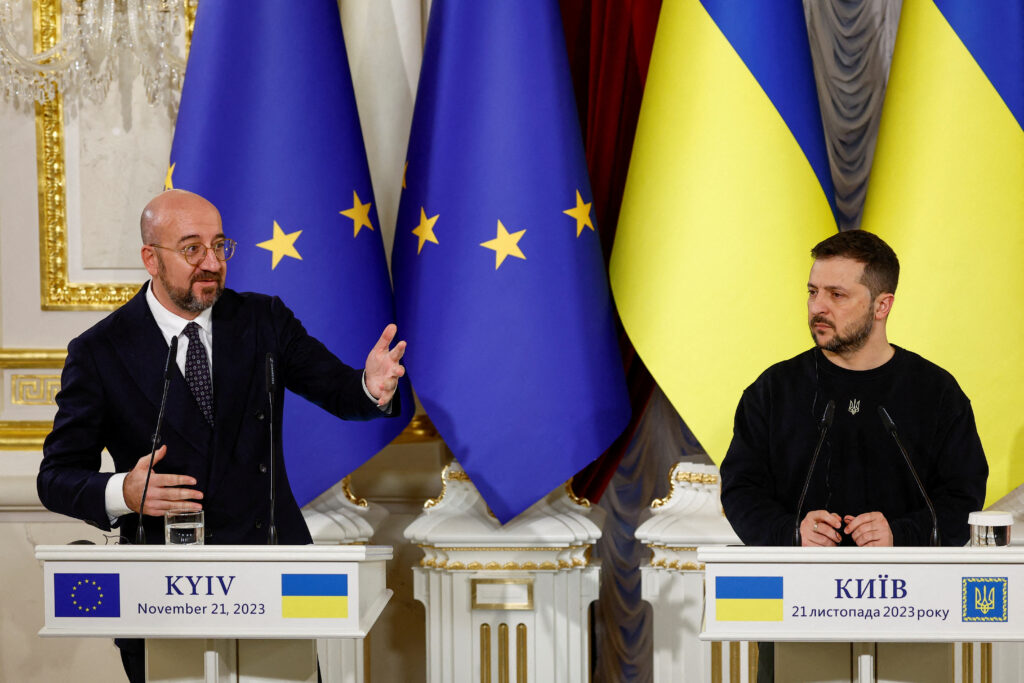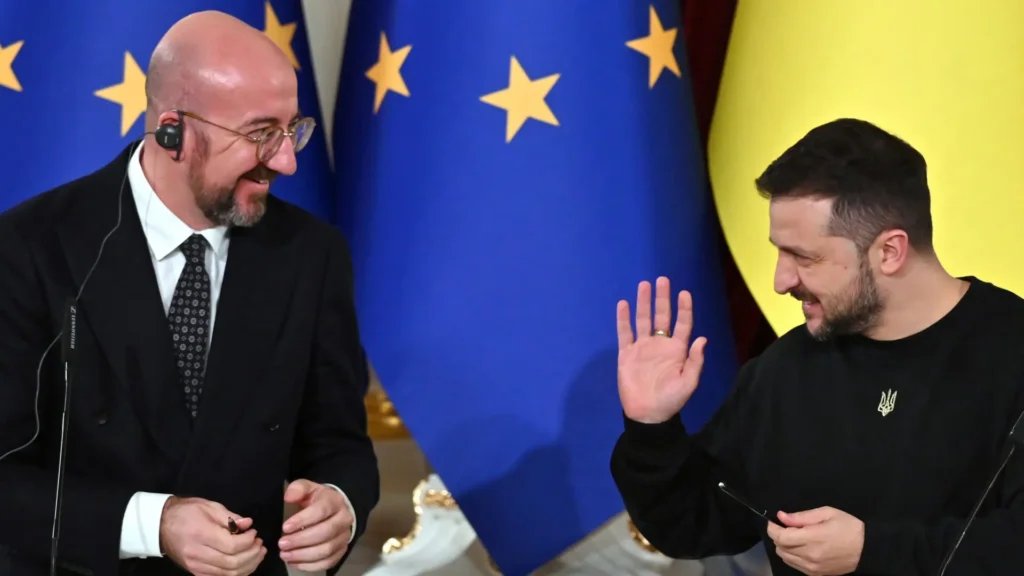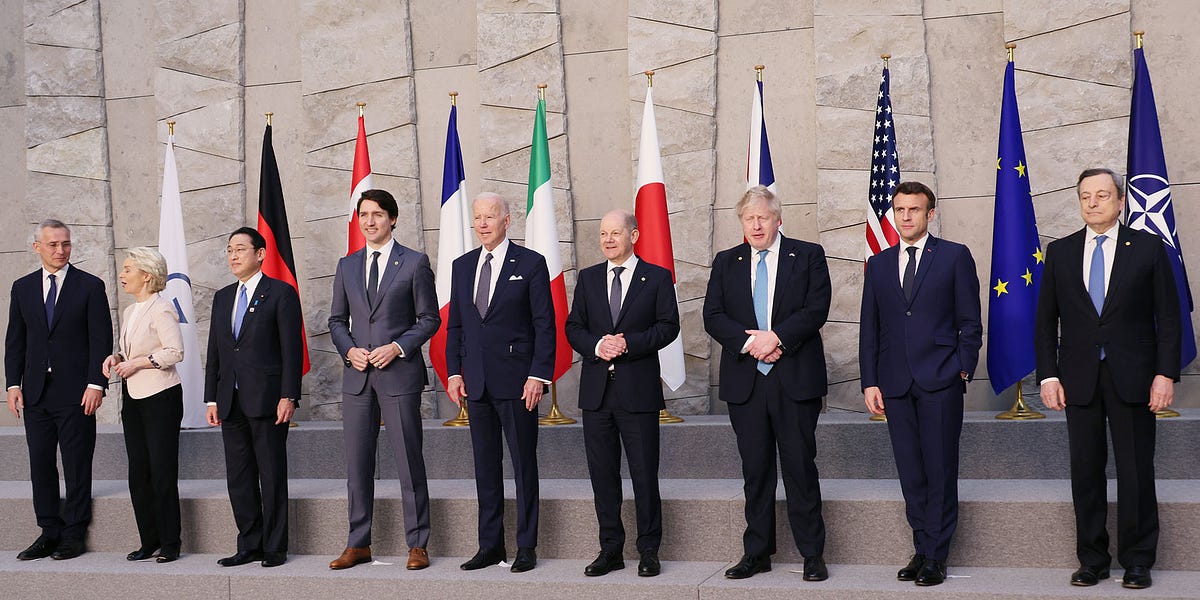Why Europe’s leadership wants war: The leaders of the European Union want to use war to “fix” the issue.

For a while now, there has been an increase in angst and anxiety regarding the future of the European Union. The union has been engulfed in a growing crisis, or rather, several growing crises: the housing crisis, the migration crisis, the cost of living crisis, the slow growth crisis, and, most importantly, the political crisis. The far right, which is gaining ground in several EU nations and threatening to destroy “liberal values” and the brittle EU cohesion, is a serious threat to it.
Austria’s elections were won a few days ago by the far-right Freedom Party, which received 30% of the vote. In Austria, the far right might yet be shut out of the process of forming a government. However, in nine of the 27 EU countries, its various European variants are in power or supporting a government.
Why Europe’s leadership wants war: Perhaps the biggest foreign issue facing the EU is the ongoing conflict in neighboring Ukraine, which is not ending despite a steady supply of weaponry from the US and Europe. Naturally, there is also the long-term impact of climate change, which keeps causing fatal natural disasters.
It should come as no surprise that the EU political leadership has responded to these growing crises by ignoring their underlying causes, which are all related to the damaging neoliberal policies they have gladly adopted. Rather, they have responded by being belligerent, possibly in the hopes that the threat of war will make the European people forget their problems.

We have heard again and time again over the last two years that defeating Russia in Ukraine is the answer to the greatest threat to European security: Russia. We have been told time and again that escalation is the way to peace.
With EU nations progressively increasing their arsenal to include more lethal and destructive weaponry, European armaments have been pouring into Ukraine. The most recent development is the demand by European politicians, including the departing EU foreign minister Josep Borrell, that Ukraine be permitted to strike targets on Russian territory with long-range missiles.
The European Parliament voted a non-binding resolution on September 19 urging nations who provide Ukraine with missiles to permit it to deploy them against Russian targets.
Russia has cautioned against such a move on numerous occasions. It even lowered the bar for using nuclear weapons in a recent modification to its nuclear doctrine.
Europeans are being advised that their nations must increase their armaments spending to prepare for the possibility that the EU would be at war with Russia if the escalation they are promoting spirals out of control, even as the escalation through arms deliveries to Ukraine continues. For instance, Andrius Kubilius, the EU’s choice for defense commissioner, a post recently established to combat the “Russia threat,” feels that the union need to turn into a “war-weapons storehouse” in order to dissuade Moscow.

Additionally, the war economy slogan has been preached, leading Europeans to assume that a military build can help the country’s struggling economy.
Mario Draghi, a liberal economist and former Italian prime minister and president of the European Central Bank, released his eagerly anticipated report, “The Future of European Competitiveness,” in September. Many have hailed it as a “step in the right direction” for advancing the union’s deeper economic integration.
“The primary goal of Europe is peace.” However, physical security risks are increasing, so we need to be ready,” Draghi stated in the report’s preface. He continued by recommending that the EU make significant investments to expand its armaments sector.
Why Europe’s leadership wants war: The Latin proverb “Si vis pacem para bellum,” which means “If you want peace, prepare for war,” seems to be being adopted by European leaders more and more. Today’s “warmongering for peace” is problematic since the availability of nuclear weapons, which have the potential to wipe out human civilization, has fundamentally altered the balance between war and peace, particularly when a nuclear state is involved.
Naturally, it might be argued that European politicians are more interested in words than actions, which explains their hesitation to let Ukraine to utilize long-range missiles in spite of the EU parliament’s vote and all the enthusiastic language. Ambiguity and verbal threats are still risky, though, because they create the possibility of military events that could have dire repercussions.
All of this rhetoric about war, war preparation, and war armaments serves as a powerful diversion from the numerous challenges facing the EU and their causes.

The EU is fundamentally a neoliberal organization that strongly defends the rights of the wealthy to amass wealth, notwithstanding its insistence on preserving human rights, freedom, democracy, and equity. Concern for protecting corporate profits, not the health and welfare of common EU people, shapes economic policy.
Because of this, the welfare state is eroding throughout Europe, jobs are becoming more unstable and dominated by the gig economy, and many people cannot afford the costs of rent, energy, and food. The Global South’s economies are being devastated by the EU’s extractive neoliberal policies, which are also causing migration to the continent through various trade agreements with poorer nations.
The EU leadership’s inability to implement a fair green transition without shifting the costs to regular citizens is another result of the EU’s neoliberal core.
None of these issues will be resolved by arming, warmongering, or the development of a massive, cohesive military-industrial complex. Rather, the EU should restructure its economic, social, political, and climatic policies to emphasize social values, pluralism, participatory democracy, welfare, sustainable growth, peace, and collaboration. To improve all of Europe and replace the current neoliberal catastrophe, this might entail creating a new kind of socialism.

